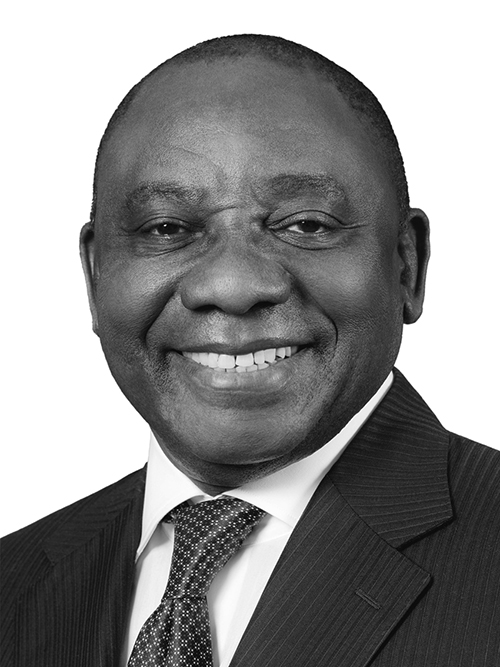Remarks by President Cyril Ramaphosa at the Annual General Meeting of the Bonsmara SA Cattle Breeders’ Society, Parys, Free State

Programme Director,
Chairperson of the Bonsmara Breeders Society, Mr Nick Serfontein,
Council Members,
Representatives from the SA Studbook,
Esteemed Members of the Society,
Bonsmara Breeders,
Ladies and Gentlemen,
I am very pleased to have been invited to address this Annual General Meeting of the Bonsmara Breeders’ Society.
While I am speaking here in my capacity as the President of South Africa, I must hasten to say that I am a member of the society in good standing with full participation rights.
Such meetings give us an opportunity to discuss innovative ways to use the potential of the agricultural sector to advance our country’s economic recovery and reconstruction.
Gathered here are patriotic South Africans who are proud to be called breeders of the Bonsmara.
These magnificent animals are a home-grown breed that are the result of experimental research over many decades since Professor Bonsma started in 1937 at the Mara Research Station.
The Bonsmara is now found in the USA, Brazil, Argentina, Georgia, Australia and eight other African countries.
The Bonsmara breed represents South Africa.
Our task is to ensure that this society also represents South Africa, in its diversity and its developmental priorities.
I am therefore encouraged by the work of the Society and the Sernick Group to bring on board a significant number of black farmers by way of training, skills transfer and providing the resources needed for success in Bonsmara farming.
Working with the Jobs Fund, the Sernick Developing Farmers Programme has sought to support and mentor developing cattle farmers in the Free State and neighbouring provinces.
I understand that emerging farmers receive training for themselves, assistants, quarterly farm visits, working capital, farm plans, infrastructure and full mentorship.
To give a scale of the undertaking, these farmers have also been supplied with 1,750 quality pregnant cows or cows with calves and 50 quality bulls as well as a total of R15 million worth of infrastructure.
The biggest task ahead in supporting these emerging farmers is to provide access to markets so that they can become self-sufficient.
We are aware of the challenges that frustrate the progress of farmers in general and emerging farmers in particular.
We are working to address the challenges of poor road infrastructure, especially rural roads, congestion at our ports, and interruptions to electricity supply.
We also need to address water pollution, poor municipal infrastructure in some areas, theft of livestock, and the biosecurity issues that limit export opportunities.
High input costs, especially of fertilisers and fuel, are a great cause of concern.
There is a risk that rising costs will undermine food security as food prices rise.
These challenges are not insurmountable if we work together to resolve them.
As we saw during the COVID-19 pandemic, agriculture is a resilient sector that was able to sustain food security during times of great uncertainty.
An important contribution to the fight against hunger was the special social relief of distress grants for unemployed people, and the input vouchers provided to small-scale farmers as part of the Presidential Employment Stimulus.
One of the areas where government and established farmers need to cooperate is livestock development in the former homelands, where the majority of emerging farmers are.
We need to match the efforts of emerging farmers with an enabling land reform programme.
The report of the Land Reform Panel provides guidance on what we need to do to drive land reform within the current legislative framework.
These include creating innovative financing mechanisms, creating a land register to house donations, releasing state land, conducting a land audit and subdividing land already acquired by the State.
We are working to provide tenure grants for individual occupiers, root out corruption, re-allocate water rights in conjunction with land allocation, and finalise outstanding restitution and labour tenant claims.
As we undertake these tasks, we will continue to look to this society to support efforts to achieve sustainable land reform and transform the commercial Bonsmara breeding sector.
I wish you fruitful deliberations and much success.
I thank you.




